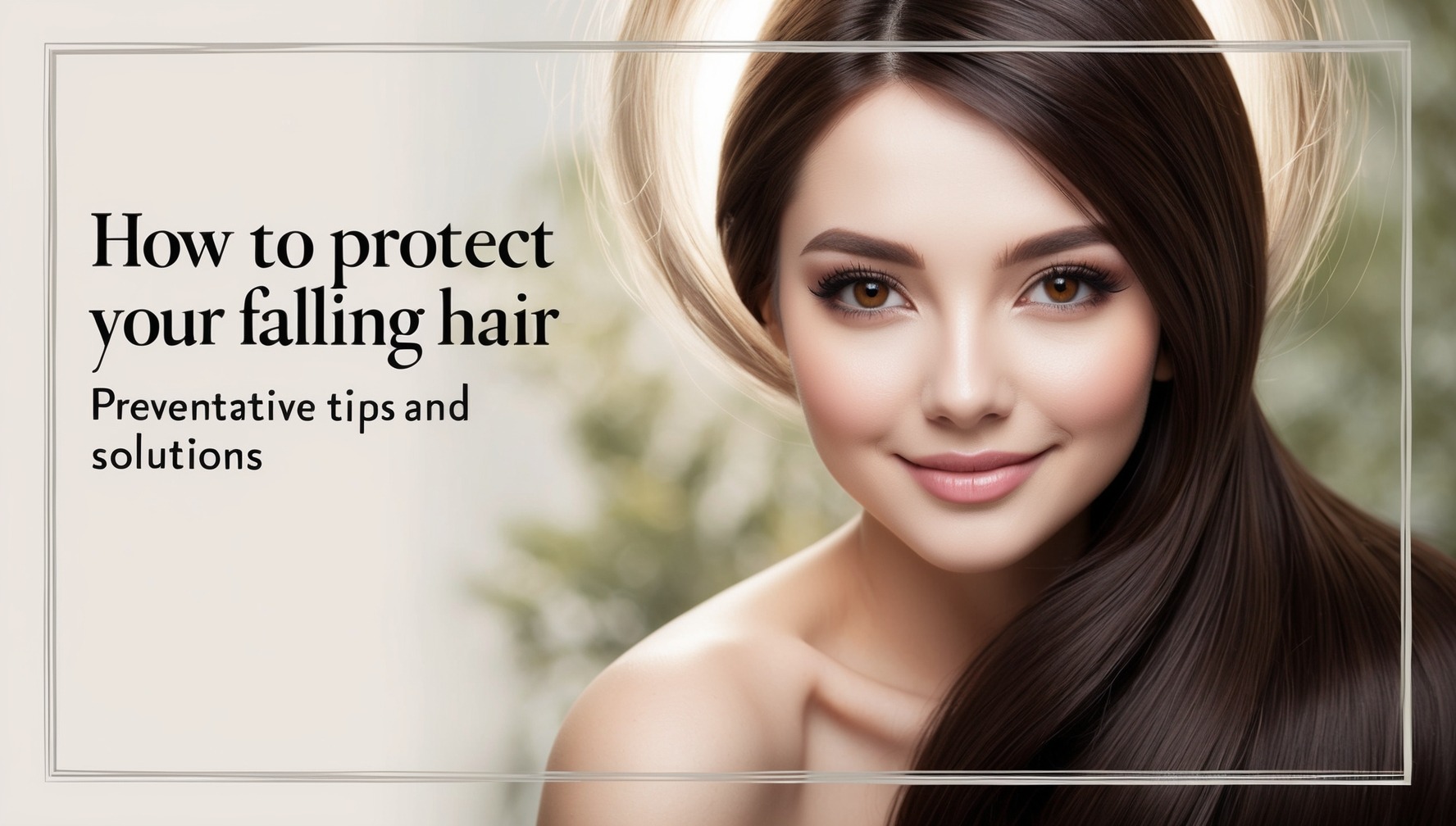Hair loss can be stressful and can affect self-esteem. The good news is that there are plenty of ways to protect your falling hair and even reverse some of the damage. Below are practical, actionable tips and solutions for healthier hair.
1. Nourish Your Scalp
Healthy hair starts with a healthy scalp. Massaging your scalp increases blood circulation, helping to strengthen your roots and encourage hair growth. Use natural oils like coconut oil or argan oil to nourish and hydrate your scalp. These oils are rich in nutrients and can prevent hair from becoming dry and brittle. For a deep conditioning treatment, try the best hair mask recipe that includes natural oils and ingredients to revitalize your hair from the roots.
2. Choose the Right Shampoo and Conditioner
The wrong products can strip your hair of natural oils, causing it to weaken and fall out. Look for products that include common natural ingredients for hair care which nourish and strengthen your hair. Avoid sulfates, parabens, and alcohol, as these ingredients can dry out your scalp. Opt for products with ingredients like biotin or keratin to support hair strength and health.
- Sulfate-free products maintain natural moisture
- Biotin supports the production of keratin
- Keratin-rich conditioners strengthen hair shafts
3. Limit Heat Styling
Excessive heat can damage your hair, making it more prone to breakage. While heat tools such as flat irons and blow dryers are convenient, frequent use leads to falling hair. If you must use heat styling, apply a heat protectant spray to minimize the damage.
- Use heat tools sparingly
- Set tools to lower temperatures
- Let hair air-dry whenever possible
4. Watch Your Diet
Your diet plays a critical role in hair health. Ensure you’re getting plenty of protein, as hair is primarily made of protein. Incorporating foods like eggs, nuts, and fish into your diet can boost hair growth. Don’t forget about vitamins and minerals; iron and vitamin D deficiencies are often linked to hair loss.
Foods that support hair health:
- Eggs (protein and biotin)
- Spinach (iron)
- Fatty fish (omega-3 fatty acids)
- Nuts (vitamin E)
5. Reduce Stress Levels
Chronic stress can trigger hair loss through a condition called telogen effluvium, where stress pushes hair follicles into a resting phase. Practicing relaxation techniques like meditation or yoga can lower your stress levels and support hair regrowth.
- Meditation calms the nervous system
- Yoga promotes overall well-being
- Deep breathing exercises lower cortisol levels
6. Avoid Tight Hairstyles
Tight hairstyles such as ponytails, braids, and buns can lead to a type of hair loss known as traction alopecia. This occurs when hair is pulled too tightly, damaging the hair follicles and causing them to weaken over time. Opt for looser hairstyles or silk scrunchies to minimize breakage.
7. Take Hair Supplements
Supplements specifically formulated for hair growth can provide essential nutrients that might be missing from your diet. Biotin, collagen, and iron supplements can all contribute to stronger hair. However, it’s best to consult with a healthcare provider before starting any new supplements.
8. Avoid Over-Washing Your Hair
Washing your hair too often strips it of its natural oils, leading to dryness and breakage. Aim to wash your hair 2-3 times a week, allowing your scalp’s natural oils to nourish the hair shafts. If your hair feels greasy between washes, consider using a dry shampoo to refresh it without the damage.
9. Sleep on a Silk Pillowcase
Cotton pillowcases can cause friction, which leads to tangling and breakage during sleep. Switching to a silk pillowcase reduces friction and helps maintain the natural oils in your hair. This simple change can lead to smoother, healthier hair over time.
10. Use a Wide-Tooth Comb
Brushing wet hair can cause breakage, as hair is most fragile when it’s wet. Instead, use a wide-tooth comb to gently detangle your hair after a shower. Start from the ends and work your way up to avoid pulling at the roots.
11. Try Scalp Treatments
Incorporating scalp treatments into your routine can improve hair health and promote growth. Look for treatments containing ingredients like peppermint oil or caffeine, which are known to stimulate hair follicles and encourage thicker, stronger hair.
- Peppermint oil improves circulation
- Caffeine stimulates hair follicles
- Regular treatments keep the scalp healthy
12. Consider Medical Treatments
If your hair loss is severe, over-the-counter treatments like minoxidil can help. This topical solution is FDA-approved and has been proven to slow hair loss and promote hair regrowth. In more advanced cases, you may want to consult with a dermatologist about options such as platelet-rich plasma (PRP) therapy or hair transplants.
13. Stay Hydrated
Dehydration affects hair health. Drinking plenty of water keeps your scalp hydrated, which in turn keeps your hair stronger. If you’re not drinking enough water, your hair can become dry, brittle, and more likely to fall out.
14. Protect Your Hair From Environmental Damage
UV rays, pollution, and harsh weather conditions can all damage your hair. Wearing a hat or using a leave-in conditioner with UV protection can help shield your hair from these external stressors.
- Wear a hat to protect from UV rays
- Use leave-in conditioners with sun protection
- Avoid prolonged exposure to pollution and dust
15. Check for Underlying Health Issues
In some cases, hair loss can be a symptom of an underlying health condition such as thyroid problems, hormonal imbalances, or even an autoimmune disorder. If you’re noticing significant hair loss, it’s a good idea to check with a healthcare provider to rule out any serious health concerns.
Final Thoughts
By focusing on a combination of proper hair care, balanced nutrition, and lifestyle adjustments, you can significantly reduce falling hair and promote healthier hair growth. Stick to these preventative tips, and you’ll be on your way to stronger, fuller hair.
